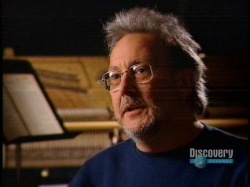 Dennis Báthory-Kitsz has been a great friend of new music, a great friend of S21, and a great friend of myself personally for about as long as I’ve been online. Justly (semi-) famous as the “Kalvos” half of the long-running institution that was Kalvos & Damian’s new Music Bazaar (now continued as Kalvos & Damian In the House!), Dennis has never let his rather remote Vermont location interfere with spreading the word about living composers and their music, whether through regular radio and online broadcasts, a steady stream of writings, and endless creative projects. At the same time, he’s also never let all these activities slow down his own personal composing schedule. Yet not every composition written has seen the full light of day, the most notable example being Dennis’ opera upon his indirect ancestor Erzsébet Báthory, the legendary Hungarian “Blood Countess”.
Dennis Báthory-Kitsz has been a great friend of new music, a great friend of S21, and a great friend of myself personally for about as long as I’ve been online. Justly (semi-) famous as the “Kalvos” half of the long-running institution that was Kalvos & Damian’s new Music Bazaar (now continued as Kalvos & Damian In the House!), Dennis has never let his rather remote Vermont location interfere with spreading the word about living composers and their music, whether through regular radio and online broadcasts, a steady stream of writings, and endless creative projects. At the same time, he’s also never let all these activities slow down his own personal composing schedule. Yet not every composition written has seen the full light of day, the most notable example being Dennis’ opera upon his indirect ancestor Erzsébet Báthory, the legendary Hungarian “Blood Countess”.
Recently Dennis has taken some steps to attempt to remedy that situation. He has a chance to see the work finally come to life, but the opera must be finished for premiere in the 2010-11 season of the Vermont Contemporary Music Ensemble. Basic funding for the ensemble’s regular season is already available, but support is needed for the singer, additional musicians, staging, costumes, lighting, and time to complete the remaining 40 minutes of the opera. So Dennis has turned to a newer online site, Kickstarter.com, to actively seek the financial support to make the performance a reality. We’re not talking the NEA or Ford Foundation here; we’re talking you and me, the little-guy music-lover with a few spare bucks in their pocket. I asked Dennis a few questions, just to get the whole fascinating (and often frustrating! ) backstory:
Steve Layton: Tell me about the whole long genesis of the idea and travails over the years?
Dennis Báthory-Kitsz: Yes, it is long! I’ll tell you everything. The genesis began shortly after Boston College professor Raymond McNally published “Dracula Was a Woman” in 1983. A state politician was doing an interview tour of Vermont entrepreneurs — I had founded a small computer company back then — and came to my home office. He knew my name, McNally was an old school buddy, he put the two together, and arrived with a copy of the book. I hadn’t paid much attention to the family history, but reading McNally’s book jogged something my grandfather Bathory had said — that the family had an evil female ancestor who killed people and fought with priests.
A few years later my company went under during the tech shakeup, and I started thinking about the Erzsébet Báthory story again as a distraction. Here was a countess rumored to be the world’s worst serial killer with some 600 servant victims — yet with normal kids, great intelligence, superior negotiating skills, and fluent in many languages. She was also supposedly bisexual and ended her life walled into her own torture tower. What a story! What opera!
Those were also the years of some pretty big works of mine, particularly “Mantra Canon” for orchestra, chorus, two pianos, six percussionists and descant soprano. By 1988 it had had two performances, so I was lit up with large-scale possibilities. The Bathory tale would make a fantastic production, maybe a huge opera of some kind.
In 1989, I wrote an overture in the form of a piano csárdás and about the same time heard that NPR poet Andrei Codrescu was writing a biography of Erzsébet. I got in touch and proposed the idea that he write the libretto. He thought it was a great idea — and he had supposedly seen her diaries, diaries that recounted the actual murders! Codrescu and I kept in touch, but things went sour. His book ended up being a novel. I hated it, and we had a falling out. After we patched things up a little, he was more famous and working on a film … meaning now the libretto would cost money I didn’t have.
I started sketching my own plots for three different-sized versions. It was still idle sketching with no real possibilities. But connections are funny. Back in the computer company days, I had become friends with Zoltan Radai, a tech entrepreneur in the “New Hungary” before the fall in 1989. When my family and I moved to Europe in 1991, I contacted him. He not only knew the Bathory story, he also knew how to find the castle and spoke Hungarian and Slovak. I remember that ride very well, in a rented Fiat Uno stuffed with five of us, going on torn-up roads from Budapest to Trencin.
The castle inspired me, a great hilltop ruin in a town nobody had ever heard of. This was before the great vampire craze really hit the marketplace, before European Union funds even put up decent road signs. I took photos and wriggled around the sunken castle arches and even squeezed into the “death tower”.
By the time we returned to Vermont in 1992, Codrescu’s “The Blood Countess” was out and vampires were interesting to legions of teenage girls. But I was broke and couldn’t consider an opera, even though another big orchestral piece called “Softening Cries” was performed that year. It was real cognitive dissonance for my compositional soul!
Then the web hit. I put up an “Erzsébet: The Opera” website in 1996. Microsoft’s old home page featured it and I had millions of hits in one week. Folks submitted articles, artwork and even novels for the site, and I put them all up along with buckets of my own research. Magazines wanted interviews; the first article on my opera work was published in “Requiem” in France in 1998.
But no money. No grants, prizes, investors sponsored by the best investment newsletters, nothing came out of it. The huge bandwidth costs for the website were out-of-pocket. In 2001 a team from The Travel Channel found the website and sent me back to Cactice in Slovakia for a show called “World’s Bloodiest Dungeons”. The Discovery Channel asked to do a segment in 2004, again sending me to Slovakia — but this time I asked if I could write an opera scene specifically for the show. The Australian producer Chris Thorburn was actually enthused, and he and the production team came to David Gunn‘s home here in Vermont where a group of us performed it — singer Lisa Jablow as Erzsébet and a small ensemble including David on percussion and Marco Oppedisano on guitar. A clip showed up on “Deadly Women”, which airs worldwide at least twice a year.
More authors were riding the vampire wave, Hollywood was churning out crappy knockoffs, yet my inability to market just about anything kept me from funding the opera. People wanted to work on it. Prague sculptor Pavel Kraus wanted to do set design. Atlanta graphic artist Bob Hobbs wanted to recreate the castle for a virtual or video version. Singers and musicians across Europe and the States were interested. Many site visitors offered help. Juraj Jakubisko‘s studio in Slovakia even contacted me about his film “Bathory” — though they wanted marketing help, not a composer.
So despite cheerleaders, it looked like it was never going to happen. I thought the project was history and decided to move on.
(more…)
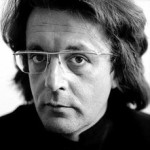
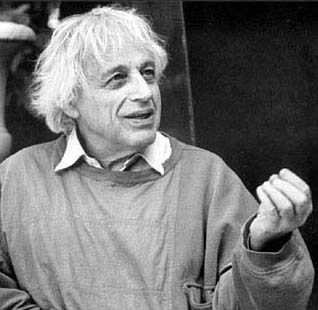
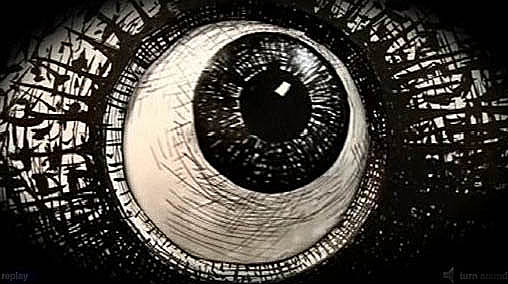
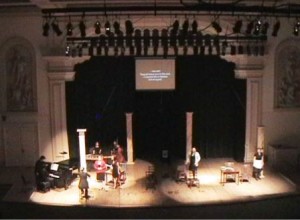

 Spring has definitely sprung down here in Houston; everything that looked dead just a few weeks ago is sprouting all kinds of new growth. And that goes for opera as well, seeing that this year’s iteration of
Spring has definitely sprung down here in Houston; everything that looked dead just a few weeks ago is sprouting all kinds of new growth. And that goes for opera as well, seeing that this year’s iteration of  This year’s festival will also include the world premiere of the winning opera from the 2009 Opera Vista Festival, Anorexia Sacra by Line Tjørnhøj. Line couples the plight of a young woman suffering from anorexia with the writings of the 13th century nun Claire of Assisi. Anorexia Sacra will be performed at 7:30pm on March 20th and 27th at the Live Oak Friends Meetinghouse (1318 West 26th Street).
This year’s festival will also include the world premiere of the winning opera from the 2009 Opera Vista Festival, Anorexia Sacra by Line Tjørnhøj. Line couples the plight of a young woman suffering from anorexia with the writings of the 13th century nun Claire of Assisi. Anorexia Sacra will be performed at 7:30pm on March 20th and 27th at the Live Oak Friends Meetinghouse (1318 West 26th Street).